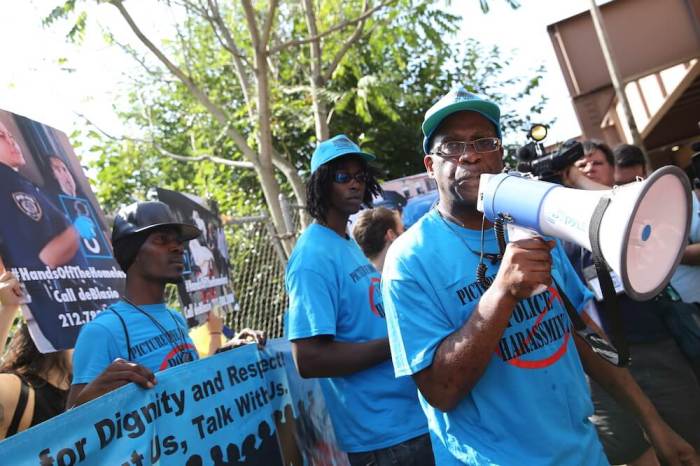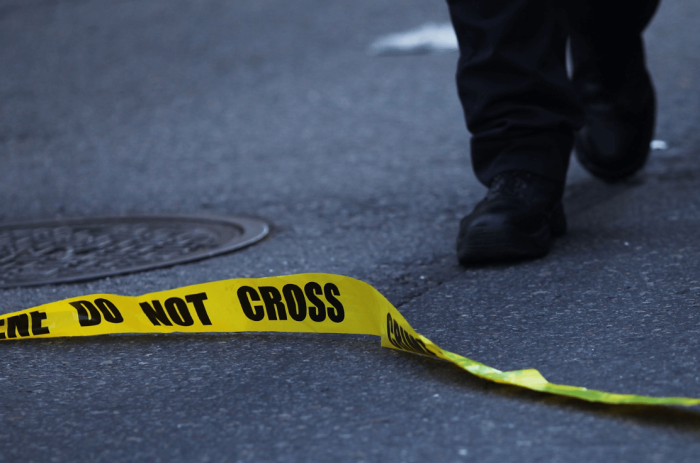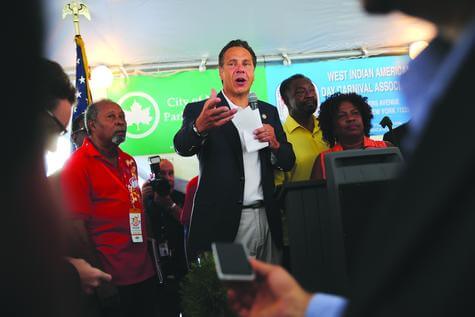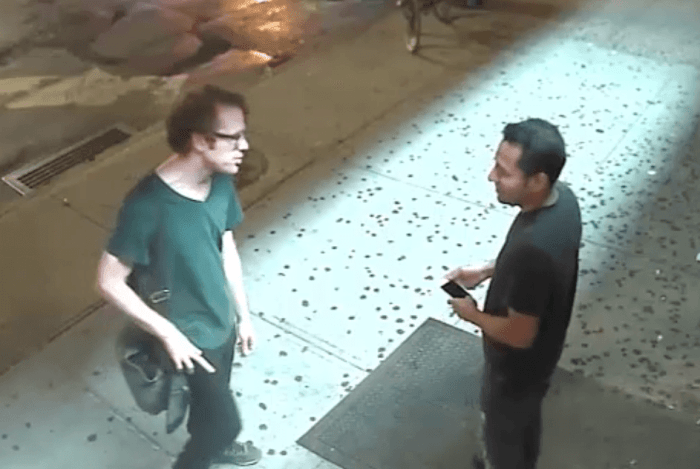Leaders of Brooklyn’s Uzbek and Muslim communities distanced themselves from the three men arrested on Thursday for plotting to join extremist group the Islamic State in Syria.
“Uzbeks are not well known in America,” said Farhod Sulton, president of the Brooklyn’s Vatandosh Uzbek-American Federation.” We don’t want to be known this way.” Sulton — whose group shares a street address with the travel agency on Coney Island Avenue one of the suspects used to purchase a flight to Istanbul for March — said the 50,000 or so Uzbeks in New York City are mostly families and hard-working people “just trying to get ahead like any other community.” The Uzbek community in New York City is as diverse as any other group. Immigrants from the Central Asian, majority Muslim country have settled in Brooklyn neighborhoods including Sheepshead Bay and Brighton Beach, as well as Queens’ Forest Hills and Rego Park sections. The three suspected terrorist sympathizers are not emblematic ofUzbeks in New York, Sulton said.
“These people, if all the allegations are true, they do not represent our community,” Sulton added as he stood in a popular Uzbek restaurant in Sheepshead Bay with Brooklyn Borough President Eric Adams and other local leaders. Abdurasul Juraboev, 24, and Abror Habibov, 30, two of the three Brooklynites arrested by federal authorities, originally hailed from Uzbekistan. Third suspect Akhror Saidakhmetov, 19, is an ethnic Uzbek from Kazakhstan. Given the size of the Uzbek community, Sulton said he knew and met Habibov — who was arrested in Florida — from local gatherings but lost contact with him in the last three or four years. Sulton said he recalled getting into arguments with Habibov over Islam and how he understood it. Declining to provide details of the conversation, Sulton only said Habibov was leaning toward a more orthodox interpretation of Islam. Sulton said the “tiny fraction” of his community” with anger towards the United States and the West might be explained by both a culture shock. “As a Muslim community moving to the United States, there’s a big culture difference,” he said. “They come to the United states to practice their religion, and probably abuse the freedom of expression and religion.” Sulton told reporters that outside of work with the local precinct, his organization had no previous relationship with federal or local law enforcement.
Sulton did not directly comment on the possible impact that the arrests might have on surveillance practice of the local Muslim community, but Borough President Adams rejected any unfounded targeting of the religious community. In 2013, advocates filed a lawsuit against the city over what they said was discriminatory surveillance of innocent Muslims by the New York City Police Department’s Intelligence Division & Counter-Terrorism Bureau. The case is still being negotiated by the city’s Law Department, but the NYPD announced in April 2014 that it would close the demographics unit that mapped out the city’s Muslim neighborhoods and upset many in the religious and legal community. “Law enforcement has the tools to correctly use surveillance, use wiretapping, use any other means that is within the constitutional safeguards. I don’t believe we should be targeting innocent people,” Adams said. “We should go after those who are clearly showing the signs of trying to bring harm to America.” Adams also suggested that his and others’ office outreach to young Muslims who might be recruited by terrorist groups or influenced to attack fellow New Yorkers will help make the city safer. “We want to be proactive,” Adams said, “go into these communities, establish relationships with the communities, identify their young people and have them talk to young people from America, from Brooklyn, so they can understand that the hate that they were hearing online, that the hate is not what America is.”
Brooklyn ISIS suspects not representative of Uzbek community: Leaders
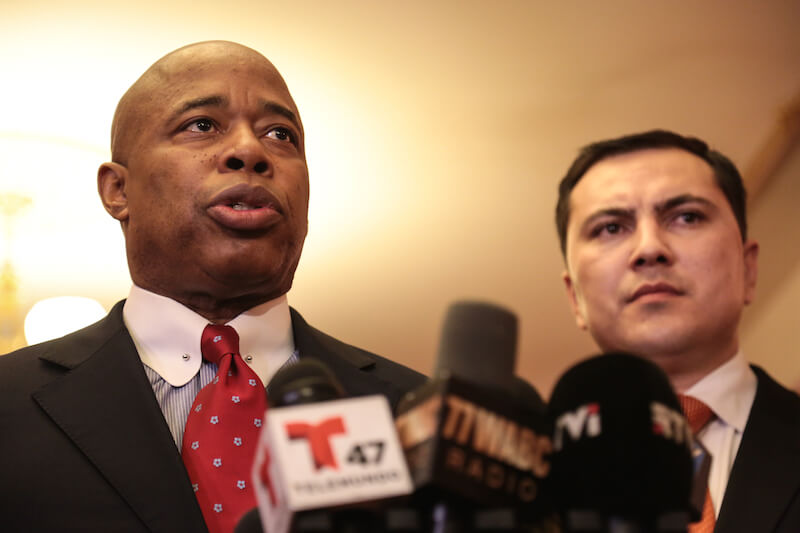
Miles Dixon/Metro











